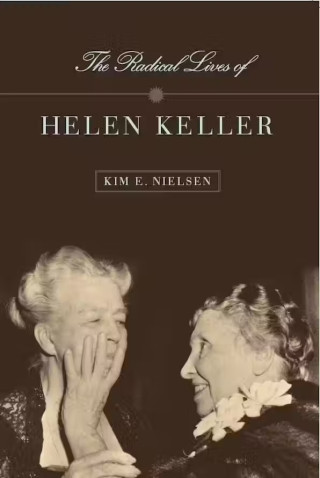As with many memes, the “Helen Keller Isn’t Real” theory has a heavy dose of irony, laid on to lend the videos’ makers some plausible deniability. That doesn’t absolve them of ableism. “The videos may have started as jokes, but that doesn’t change the fact that they are harming disabled people,” Haben Girma, a Deafblind human rights lawyer who wrote a Twitter thread on the TikTokers in January, said in an email to me. “Nearly every disabled person has been told, at one time or another, ‘You’re faking it.’ ”
Keller was first accused of “faking it” when she was 11, and was investigated for plagiarizing a fanciful story she wrote, called “The Frost King.” Young Keller was put on “trial” before several adults at the Perkins School for the Blind, where she was a student. After some noted the similarities between a piece by a published author and Keller’s story, the head of the Perkins School, who had previously been a passionate advocate of Keller’s, called her “a living lie.” (Mark Twain, who would later become Keller’s friend, called the panel of suspicious teachers a bunch of “decayed turnips,” which is pretty perfect.) The experience was wrenching for Keller and proved to her early on just how easy the same people who had put her on a pedestal found it to turn on her. “As I lay in my bed that night, I wept as I hope few children have wept,” Keller wrote in her autobiography.
Cynthia Ozick points out that when that autobiography came out, in 1903, Keller was again accused of “inauthenticity,” with interviewers and reviewers accusing her of writing about things that she could never really know about. (“All her knowledge is hearsay knowledge,” wrote a reviewer in the Nation.) She kicked back: “The bulk of the world’s knowledge is an imaginary construction.” Kim Nielsen, historian and author of The Radical Lives of Helen Keller, told me that Keller would “respond to accusations with jokes as much as possible—try to deflect with humor,” especially as she got older. “But she certainly found it personally infuriating, and professionally difficult,” Nielsen added. “It hindered her ability to make a living.”
